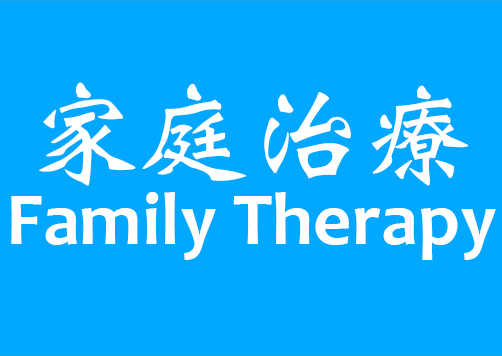關於 About



王愛玲博士 Dr. WONG Oi Ling
王愛玲博士是香港大學哲學博士、資深家庭治療師,及美國婚姻及家庭治療協會(AAMFT)認可的專業督導。曾任職香港大學和香港中文大學超過十年,教授婚姻及家庭治療理論課程及臨床督導。王博士對推廣家庭治療不遺餘力,經常在中國內地、新加坡、澳門和香港,為各大學、醫院及社福機構,進行婚姻及家庭治療專業培訓和督導,在社工、教師、諮詢師及醫護群體當中,得到了高度的認可。現任香港理工大學應用社會科學系實務教授(家庭治療)及私人執業,為個人、夫婦及家庭提供輔導服務。
如對輔導服務或訓練課程有任何查詢,歡迎電郵至dr.cindywongol@gmail.com或按此與王愛玲博士取得聯繫。
Dr Wong Oi Ling is an AAMFT Approved Supervisor. She is a part-time Professor of Practice (Family Therapy) at the Department of Applied Social Sciences of The Hong Kong Polytechnic University. Dr. Wong has been conducting training and delivering supervision courses in the field of marriage and family therapy for universities, hospitals, and social work agencies since 2000 in Mainland China, Singapore, Macau and Hong Kong. Dr. Wong also has many years of direct practice experience, especially in the mental health field. She now conducts marriage and family therapy in a private practice setting.
If you have any inquiry regarding counseling service or training courses, please write to dr.cindywongol@gmail.com or click here to contact Dr. Wong Oi Ling. |
|

|
學歷 Academic Qualification
| PhD |
The University of Hong Kong 哲學博士 (香港大學) |
| MSocSc |
The University of Hong Kong 社會科學碩士 (香港大學) |
| BSocSc |
The University of Hong Kong 社會科學學士 (香港大學) |
專業資格 Professional Qualification
- 認可臨床督導(美國婚姻及家庭治療協會)
Approved Supervisor of American Association for Marriage and Family Therapy
- 治療院士(美國婚姻及家庭治療協會)
Clinical Fellow of American Association for Marriage and Family Therapy
- 香港專業輔導協會認可的輔導員
Associate Fellow of the Hong Kong Professional Counseling Association
- 香港專業輔導協會認可的專業督導
Approved Supervisor of the Hong Kong Professional Counseling Association
- 美國家庭治療學院的臨床導師會員
Clinical-teacher Member of American Family Therapy Academy
- 註冊社會工作者 (香港)
Registered Social Worker (Hong Kong)
現任職 Current Appointments
- 香港理工大學應用社會科學系專業實務教授 (家庭治療)
Professor of Practice (Family Therapy)
Department of Applied Social Sciences, The Hong Kong Polytechnic University
- 香港明愛全人發展培訓中心高級培訓及輔導顧問
Senior Training and Counselling Consultant
H.E.A.T. Caritas Hong Kong
曾任職 Previous Appointments
- 香港中文大學社會工作系助理教授
Assistant Professor
Department of Social Work, The Chinese University of Hong Kong
- 香港大學社會工作及行政系高級教學顧問
Senior Teaching Consultant
Department of Social Work and Social Administration, The University of Hong Kong
- 香港大學家庭研究院臨床督導
Clinical Supervisor
HKU Family Institute, The University of Hong Kong
- 新生精神康復會社會工作督導主任
Social Work Supervisor
New Life Psychiatric Rehabilitation Association
輔導專長 Counseling expertise
- 婚姻輔導
Martial counseling
- 婚外情輔導
Extra-marital affairs counseling
- 分居離婚輔導
Separation & divorce counseling
- 親子關係和子女管教輔導
Parent-child relationship and child discipline counseling
- 兒童/青少年情緒行為問題輔導
Children/adolescents with emotional & behavioral problems
- 家庭關係和衝突輔導
Family relationship & conflict counseling
- 照顧年老長者的家庭輔導
Counseling for family caregivers
專業培訓 Professional Training
- 家庭治療訓練
Family therapy training
- 臨床督導
Clinical supervision
|

|
書籍 Books
王博士帶領讀者進入家庭的心臟地帶,述說家庭成員們接受輔導的過程,解開糾結的關係及開啟自我療癒的通道
1 王愛玲 (2012). 夾縫中的孩子 A Child in the Dilemma. 香港: 天窗出版社
《夾縫中的孩子》,顧名思義就是夾在父母衝突中透不過氣的孩子。書中八個真實個案,描述孩子行為、情緒背後錯綜複雜的家庭故事;讀者能走入每個家庭的心臟地帶,一窺現今社會的家庭縮影:從普通家庭,以至單親、領養、離異家庭……還有常見的現象:操勞過度的母親、袖手旁觀的父親、以及忠心的孩子;書中的家庭,定能引起讀者的共鳴。

|
|
 |
2 王愛玲 (2013).〈肥胖少男與家庭治療〉.載於陳德茂編《靜靜起義:男士工作新思潮》,頁54-69。香港:紅出版
這項研究率先以家庭系統的架構,去理解華人社會中兒童肥胖的現象。六名七至十三歲的肥胖男孩及其家庭參加了這項研究。在這六個家庭的資料中,凸顯出四個主題:(一)食物把哺育者和肥胖的孩子連結在一起;(二)與肥胖孩子結盟的父或母與孩子出現關係過份密切的現象;(三)進食與延伸家庭的連結關係;(四)進食習慣的權力和控制。此項研究可以看到婦女作為哺育者以及延伸家庭對孩子的進食習慣有更大的權力和影響。從事健康護理的專業人員,可參考文中所提之互動模式的各種特徵,去評估和治療肥胖兒童及其家庭。
3 王愛玲 (2015). 婚姻滋味 ── 尋回相愛的甜蜜 Making Marriage Work. 香港 : 天窗出版社
《婚姻滋味──尋回相愛的甜蜜》是《夾縫中的孩子》的延續,讓《夾縫中的孩子》沒有機會說清楚的夫妻關係,得以深入探討。
作者以婚姻及家庭治療師的角度,述說家庭成員們接受輔導的過程,並探討夫妻關係受傷的成因,治療師如何幫助他們編撰新的舞步,嘗試改變伴侶陳年的溝通模式,以修補彼此關係,與對方一起舞出幸福婚姻。
這本書有六個家庭治療的個案,這些都是以助人為專業工作的人員經常碰到的婚姻問題:〈吵架夫妻〉描述一對中年夫妻如何開展一段化解三十多年恩怨情仇的治療旅程;〈受傷的妻子〉是關於一對再婚的夫妻,怎樣在錯綜複雜的姻親關係中化險為夷;〈患難夫妻〉述說夫妻面對婚外情的衝擊,如何能從傷痛中反思婚姻;〈距離的隔閡──中港婚姻〉敘述丈夫如何補救他的嫖妓偷歡對妻子造成的傷害;〈蝸居中的偷情夫妻〉探討性生活在現代夫妻關係內的重要性;〈當記憶中已沒有你〉讓我們瞭解照顧罹患認知障礙症妻子的丈夫,在情、義、欲方面的掙扎和取捨。
六對夫妻的經歷,讓我們嘗到婚姻中的酸、甜、苦、辣。
另外,書內描述婚姻治療的過程及治療師的個人反思:如何避免陷入夫妻角力的僵局,加強及帶動夫妻求變,這些可作為婚姻輔導從業人員參考。

|
|

|
4. 王愛玲 (2017). 代代相愛──解開糾結的關係 Transgenerational Families. 香港:天窗出版社
這本書包括六個家庭治療的故事,讓大家從家庭的視野,瞭解個人困擾及家庭衝突其實與理不清、錯綜複雜的三代關係息息相關。作者以家庭治療師的角度述說家庭成員們接受輔導的過程,通過共情的真實家庭故事,讓讀者身臨其境,反思自己的問題,並開啟自我療癒的通道。
這本書的第一章,首先以家庭生命周期闡述代際關係,讓讀者了解失衡的家庭互動模式是如何形成以及維繫,然後再有六個家庭治療的個案,這些都是以助人為專業工作的人員經常碰到的三代關係問題:〈磨心男人〉描述一個丈夫夾在母親與妻子兩個女人中間怎樣轉移忠誠,為配偶和小家庭帶來新轉機;〈家中警察─爸爸〉敘述沉溺上育兒課的太太與無法「親子」的丑角爸爸;〈妻追夫跑〉是關於一對夫妻如何走出婆媳糾紛和婚外情疑雲的創傷幽谷,重建親密關係;〈婆孫情、母女恨〉探討三代母女水火不容關係的來龍去脈;〈「分裂」的父子〉討論一對患上精神分裂症的父子怎樣打破忠誠分裂之僵局,並活出自我。〈三代恩仇〉讓我們一窺華人社會的複雜家族網絡:婆媳衝突、姑嫂矛盾、姐弟不和、夫妻惡鬥、父母子女的恩怨情仇。
書中的六個個案,有來自基層的家庭,也有來自中產的家庭,他們經歷的困擾與處境,讓我們體驗到家族關係內的束縛、綑綁和三代千絲萬縷的恩怨情仇。他們的故事述說一個普遍的現象:代代之間有著模糊、痴纏、糾結的界線,其實人與人、代與代之間都是需要空間和界限的,讀者可以引以為鑑。另外,書內描述治療的過程及治療師的個人反思,可作為家庭為本的從業人員參考。

|

|
期刊 Journals
請點按標題預覽概要 Please press the headings of articles for abstract
| Wong, O.L. (2001). The strength approach in working with multi-problem families: A case study. Hong Kong Journal of Mental Health, 30, 78–89. |
 |
Abstract
This is a case study. It will compare and contrast the individual approach focusing on deficits versus the family approach emphasizing strength in working with a multi-problem family. This is a process oriented paper aiming to discuss the application of a strength approach to elicit the untapped family resources to heal itself throughout the intervention process. It also addresses the importance of coordinating the various social service systems and mental health professionals involved in the case. As revealed, success of this case hinges on the shift of mind-set of professionals from deficit to strength and also the cooperation of all systems involved to help the family solve the problem.
| Wong, O.L. (2008). Childhood obesity in a family context: An exploratory study in Hong Kong. Unpublished doctoral dissertation, The University of Hong Kong, Hong Kong. |
 |
Abstract
It has been well documented in the literature that the family has a significant role to play in a child’s weight problems, but very few attempts have been made to apply the family systems theories to obesity in the field, and no attempts have been made locally. This study aims to understand the characteristic patterns of family relationships in Chinese families with an obese child. A constructivist grounded theory approach guided the study design. In-depth family interviews were conducted, twice in an office setting and twice at the home of each respondent.
A total of eight obese children and their families participated in the study. Six were male and two were female, ranging in age from seven to thirteen. The findings indicated that there was no effective parental hierarchy. The obese child was over-involved with the obese parent. A coalition between the overweight parent and the obese child existed against the average-weight parent, and there was unresolved marital conflict. Very often, the obese child was triangulated into the couple battlefield. The findings reflect similar characteristics to Minuchin’s Psychosomatic Family Model and Harkaway’s study with five adolescent girls age 12 to 14 who came from two-parent families.
The study also reflects the significant role of food in Chinese family relationships. The children were special and were rewarded with food by the parents and older family members. The extended family played an important role in contributing to the child’s obesity, such as in the child’s eating habits. Food and eating served a bonding function, cementing the relationship between the nurturer and the child, and the extended family and the immediate family. The power of the nurturer in food provision was observed, and the obese child was found to be in the powerful nurturer’s camp. Lastly, women’s power dominance was revealed in a society in which patriarchal values prevail.
This study identifies specific relational patterns and advances our understanding of child obesity from a family perspective in Hong Kong. A systemic framework in assessment and treatment of the families with obese children is recommended. Implications for family treatment and future research are highlighted.
| Wong, O.L. (2010). Meaning of food in childhood obesity: An exploratory study in a Chinese family context. Health Care in Social Work, 49(4), 1–16. |
 |
Abstract
This study aimed to examine the relational meaning of food, based on the results of a qualitative study of eight obese children (six male and two female) and their families in a Chinese society in Hong Kong. The children range in age from seven to thirteen. Findings reveal the important bonding function of food in family relationships. Two clinical themes were identified from the data: (1) food bonding nurturer and obese child; (2) eating and the bonding relationship with extended family. Putting a child on a diet was found to disrupt the bonding between the nurturers and the obese child. Power struggles over the loyalty of the child in food provision were also observed. Implications for practice are discussed.
| Wong, O.L. (2010). Childhood obesity in a Chinese family context. Contemporary Family Therapy, 32(3), 335–347. |
 |
Abstract
This qualitative study explored themes that described families with obese children in Chinese society. Eight obese children and their families participated in the study. Six of the children were male and two were female, ranging in age from 7 to 13. The themes found were: over-involvement between allied parent and obese child, coalition, diffused boundary between extended family and nuclear family, lack of conflict resolution, and disengaged couple boundary. In this study, the significant role that may be played by the extended family in contributing to a child’s obesity, as well as female power dominance in the domestic sphere are considered. Implications for therapy are discussed.
| Wong, O.L. (2011). Gendered power in eating habits: Insight into childhood obesity in a Chinese context. Journal of Family Therapy, 33(3), 332–352. |
 |
Abstract
In this article, an attempt is made to understand how power and control issues between genders manifest themselves in eating habits in a Chinese family context, which contribute to the child’s obesity problems. Eight obese children (six male and two female) and their families participated in the qualitative study. Their ages range from seven to thirteen. The two clinical themes of power dynamics in eating habits that emerged in the findings are dominant husband, and wife in charge. Eating practices are characterised by struggles over who is in control, and power is played out in the gendered division of work in the kitchen, food preferences, or feeding practices. The powerful parent was observed to be the one allied with the obese child, and the coalition further increased the power base. The study also reveals women’s power dominance in a society in which patriarchal values prevail. Implications for treatment are discussed.
| Wong, O.L., & Ma , J.L.C. (2013). Development of family therapy in Hong Kong. Contemporary Family Therapy, 35(2), 244–256. |
 |
Abstract
This paper provides an insight into the development and growth of family therapy in Hong Kong. Family therapy was introduced in Hong Kong in the early 1980s and is now gaining ground. The authors give a historical account of the development of family therapy in Hong Kong, and report on its progress and achievement for the past three decades there. The field has gone through several stages of development. The 1980s were marked by an importation of Western family therapy models, during which overseas expertise was tapped to promote family therapy. The 1990s were characterized by a blossoming of different schools of family therapy on the local scene. Most schools established their own practice centers, and training packages were tailor-made for local use. The 2000s were an important era of family therapy development in Hong Kong. The field has nurtured a new generation of leaders (both academics and front-line practitioners and trainers) who play an essential role in advancing its development. The paper concludes by identifying problems in clinical practice, professional training, and research and knowledge development, and proposes ways of overcoming these difficulties.
| Wong, O.L. (2014). Integrative Family and Systems Treatment with Parental Mental Illness: A Hong Kong Chinese Family. Contemporary Family Therapy, 36, 242-249. |
 |
Abstract
Integrative Family and Systems Treatment (I-FAST) is a systems-based, home-based and strengths-oriented treatment model that has been developed and implemented within the community mental health system. Using a single case example, this paper discusses the application of I-FAST to a Chinese family in Hong Kong in which the mother has a mental illness. The paper critically examines the deficit-based approach, widely used in the mental health field, which stigmatizes people with psychiatric disabilities. Treatment implications of families with parental mental illness in a Chinese context are discussed.
| Wong, O.L., Kwong, P.S., Ho, C.K.Y., Chow, S.M.Y., Kwok, T., Wong, B., Ho, V., Lau, A., & Ho, F. (2015). Living with dementia: An exploratory study of caregiving in a Chinese family context, Social Work in Health Care, 54, 758–776. |
 |
Abstract
This qualitative study explored themes that described families taking care of elderlyrelatives with dementia in Chinese society. Ten families were invited for two in-depth familyinterviews involving spousal caregivers, child caregivers and care recipients. Five themesresulted: positive marital bond as coping strategies, power and control in the caregivingrelationship, adult children’s involvement in caregiving, sibling rivalry, and intergenerationalconflicts. The ways these themes functioned and helped in dementia care, the researchimplications, and limitations are discussed.
| Wong, O.L., Wan, E.S,F., & Ng, M.L.T. (2016). Family-centered Care in Adults’ Mental Health: Challenges in Clinical Social Work Practice, Social Work in Mental Health. |
 |
Abstract
This article presents findings from an exploratory study to examine mental health social workers’ perspectives on factors that impede the implementation of family-centered care to adult mental health practice in Hong Kong. Seven mental health social workers were interviewed. The analysis identified a paradigm shift from a biomedical to a family-centered and strengths-based perspective; a paradigm shift from risk control to proactive case management, and a paradigm shift from management accountability to professional empowerment as affecting the frontline practitioners in applying a family-centered approach to mental health care. Recommendations for clinical social work practice at individual, organizational and policy levels are outlined.
| Ma, J. L.C., Yuan, R.R., Leung, T.Y.K., & Wong, O.L. (2017). Learning outcome of a family therapy training course for psychiatric nurses in a Chinese context, Contemporary Family Therapy. |
 |
Abstract
This paper reports the results of an evaluation study, which assessed the changes in knowledge and skills of psychiatric nurses after they had attended a training course in family therapy in Hong Kong. Systemically based and strengths oriented, the 49-hour training comprises three modules which include lectures, sensitivity training, clinical observation and clinical supervision. Seventeen out of 24 psychiatric nurses participated in a panel study after they had attended the course. Data were gathered using a structured questionnaire during three phases: pre-training (time1), completion of module I (time 2) and completion of module III (time 3). The results of an ANOVA have shown that the training had a significant positive effect on the psychiatric nurses’ knowledge, skills and attitudes from time 1 to time 2. The nurses’ mean scores in these three areas continued to increase respectively, though the changes in the two mean scores from the questionnairesattime 2 and time 3 were statistically insignificant. Implications for future training andpromoting the family-centered approach in mental health services are discussed.
| Ma, J. L.C., Yuan, R.R., Leung, T.Y.K., & Wong, O.L. (2018). “Subjective learning experiences of psychiatric nurses being trained in family therapy: A qualitative inquiry in Hong Kong”. Asian Journal of Family Therapy, 2(2), 27–41. |
 |
Abstract
The subjective experiences that psychiatric nurses have while learning family therapy have been insufficiently
explored in Hong Kong. Therefore, this paper identifies the learning experiences encountered by 45 psychiatric
nurses during 42-hours of family therapy training over the past three years. Qualitative in nature, the data used in
this study were collected using six focus-group interviews. The results of the study have shown that the
participants valued the contributions of clinical supervision in assisting them to integrate theoretical concepts
into their nursing practice. They had undergone a conceptual shift from a biomedical perspective to a systemic
lens and had broadened the focus of their assessment from simply identifying the pathology of persons with
mental illnesses to looking for their strengths and talents. The implications of this study for future family therapy
training for psychiatric nurses are discussed.











